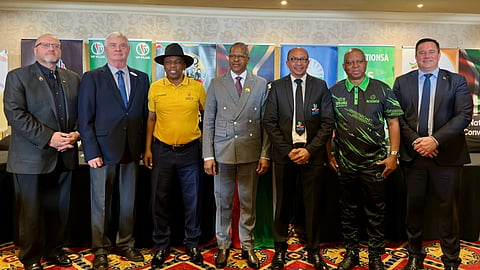Hartford: A coalition’s toughest post-election challenge – the ANC-bloated State
Cyril Ramaphosa delivered an animated speech at Mbombela stadium to kickstart the ANC's election campaign, emphasising the party's intent to secure a majority without forming coalitions. Sceptics think the ANC will struggle to achieve this. A victorious coalition, however, faces the monumental task of steering a State entrenched in 30 years of ANC rule, with excessive VIP protection spending and public servant wage imbalances just the start. With over 700 state-owned enterprises and almost 20m dependent on State grants, any post-election government will have to navigate and presumably untangle a complex web of ANC-influenced systems.
Sign up for your early morning brew of the BizNews Insider to keep you up to speed with the content that matters. The newsletter will land in your inbox at 5:30am weekdays. Register here.
By Dirk Hartford
Cyril Ramaphosa's unusually animated, backwards-looking speech in Mpumulanga on Saturday launching the ANC's election campaign is a good place to press pause and look at what the victor in this year's election will inherit and have to deal with.
___STEADY_PAYWALL___

